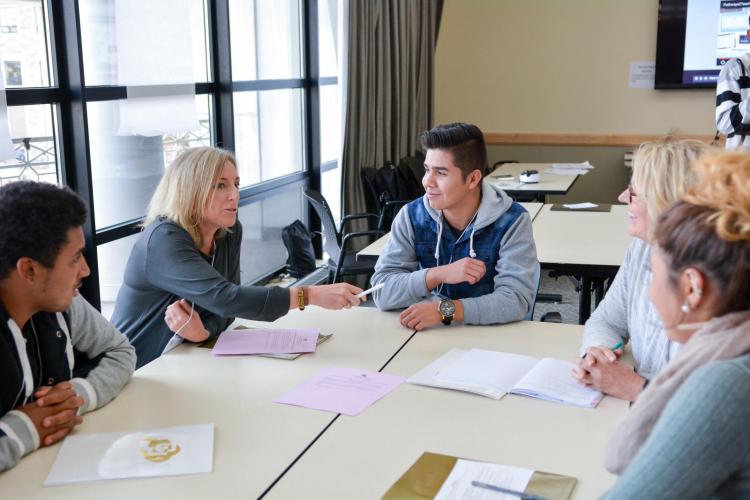Focus Groups

Focus groups usually consist of three to twelve carefully selected participants who share similar attributes qualifying them to give valuable insight or evaluation on a particular topic. Focus groups are used to collect qualitative data that reveals insights relating to a program or projects impact.
When to Use: Before decision points, to collect information for making decisions
Estimated Time: 10 - 90 minutes
Participants: Youth, Adults, Educators
Supplies: Facilitation, comfort, and inclusion are key to successful Focus Group meetings
- Meeting space with chairs arranged so participants can see each other
- Moderator to introduce topic and ask question prompts
- Recorder or person assigned to take notes of discussion or record ression
Sample Questions: Focus group questions are prepared ahead of time and asked in the following sample sequence from the University of Kentucky Cooperative Extension.
- Opening questions are used to get people talking and feeling comfortable. They should be easy to answer, but should not emphasize differences among group members.
- Example: Tell us your name and how long you have been participating in the program.
- Introductory questions are used to get the group to start thinking about the topic at hand. They help focus the conversation.
- Example: How was it that you first learned about the program?
- Transition questions provide a link between the introductory questions and the key questions. They typically ask participants to go into more depth than introductory questions.
- Example: Think back to when you first became involved with the program. What were your first impressions?
- Key questions focus on the major areas of concern. The majority of the time is devoted to discussions of these questions.
- Example: In what way is your life different because of your participation in the program?
- Ending questions bring the session to closure.
- Example: Is there anything we should have talked about, but didn’t?
Resources:
- Using Focus Groups in Program Development and Evaluation - University of Kentucky Cooperative Extension Service
- Conducting Focus Groups - Community Took Box
- How to Use Focus Groups in Schools - from Savvy Decision Making
- Quality Circles in a classroom setting - Cornell University

